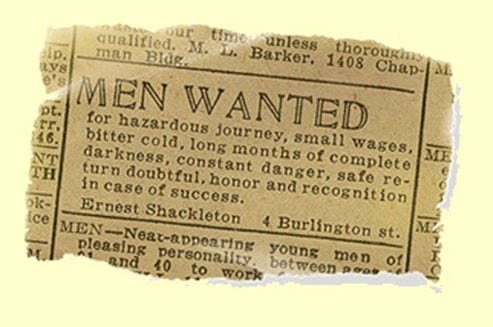Today marks six months since joining Rostra, so I thought I’d share six of the biggest lessons I’ve learned so far. They apply to comms (naturally), but I’ve found they also make for good lessons about people, companies, and life:
Wow, everything’s computer. If you’re reading this, you already know it’s quite literally never been easier to build something. The corollary of this is that it’s never been harder to get people to care. For me, the starkest example of this has been in speaking with reporters — as funding rounds continue to balloon in size, startup reporters likely won’t blink at a story unless the funding number is in the nine-figure range (or more). The overload of content and news makes for a tougher comms environment, but it’s a good forcing function to hone the message that actually gets people to pay attention. This is typically some interesting thesis about what’s happening in the world and where it’s headed. A helpful test is: let’s say your company didn’t exist — what’s something you could say that would make your target audience feel understood?
Keep the main thing the main thing. For Rostra and our clients, that means: comms goals = business goals. Lulu’s formula for a disciplined comms strategy that avoids wasted motion always begins with the strategic objectives: typically sales, recruiting, fundraising, or a stack-ranked combination of the three. The first step is identifying your goal and being clear about what you hope the outcome will be. The second step is figuring out what actions need to be taken, by whom, to achieve that goal. The third step is to crystallize what those people need to believe in order to take that action. From there, you have enough information to shape the message they need to hear, and the question then becomes how to make it personal, timely, and urgent enough that they stop what they’re doing to listen. Like many great things in life, this framework is very simple, although that doesn’t mean it’s easy.1 It’s actually hard! But sticking to a principled strategy like this one helps.
The enemy’s gate is down. Or, for Silicon Valley folk: you need to be updating your priors. In Ender’s Game, a group of elite young cadets are recruited for military training to learn how to fight against aliens. In one of their simulated wargames, the cadets are put into an enclosed zero-gravity space to battle against one another. Competing in zero gravity means that when the teams enter the space, they bring their orientation from the hallway outside and apply the arbitrary concepts of up, down, and across to the new space. Most of the cadets don’t even realize their disorientation — they just assume that the way things were outside is the way things are in the battle area. Ender, the book’s protagonist, was able to reframe the idea that the enemy’s gate was down, changing the nature of how the wargame was conducted. For comms, or for anything really, what worked before may not necessarily work now. The world is changing too quickly to rely on outdated playbooks. The best advice I can give you here is to stay in the game and adjust accordingly.
What you’re not is as important as what you are. Three great examples of this are the recent “Don’t Work At Anduril” campaign, Oslo’s “Is it even a city?” anti-tourism tourism ad, and this gem from Lulu on who shouldn’t go work at Substack. This is great advice for both recruiting and life. Knowing what you won’t tolerate clarifies what you will. It also acts as a beacon for the right people who should join you. Believe in something!
Build something people want (to be a part of). Companies achieve cult status through a mix of tribalism, goodwill, and status signaling. Seeing the Ramp ad during the Super Bowl was a win for chronically online tech people everywhere, whether or not they work at Ramp. Corporate cards are actually boring (spoiler!), but Ramp is a generational company and its employees ship fast, so posting about Ramp helps align your own brand with that ambition and speed. Talking about how much you love Anduril or Palantir suggests you’re actually based now (no really, you’re not woke anymore, contrary to your tweets from the previous zeitgeist). When a company has a strong mission, people want to contribute, even if it’s from the outside.
Speed is the moat. One of the many reasons I feel so lucky to be at Rostra is because I get a clear picture into how some of the best companies in the world build and operate. The biggest constant among them is that they just move faster than everyone else. They ship faster, fail faster, and iterate faster. The difference is palpable. If you think you’re not moving fast enough, you’re probably right.
Onwards to the next six!
Gaby
Such great things include, but are not limited to: running a marathon, committing to someone, calling your mom every day, making a hard boiled egg, writing a thank you note, listening to someone without interrupting, practicing gratitude, meditating.





